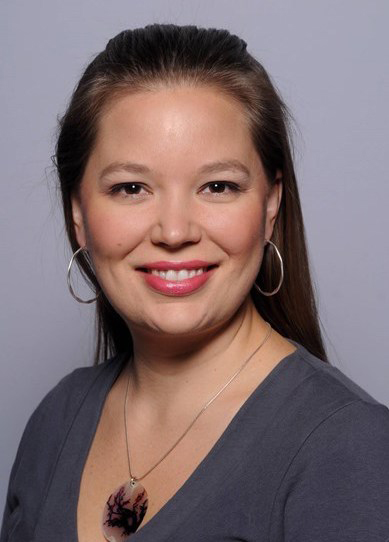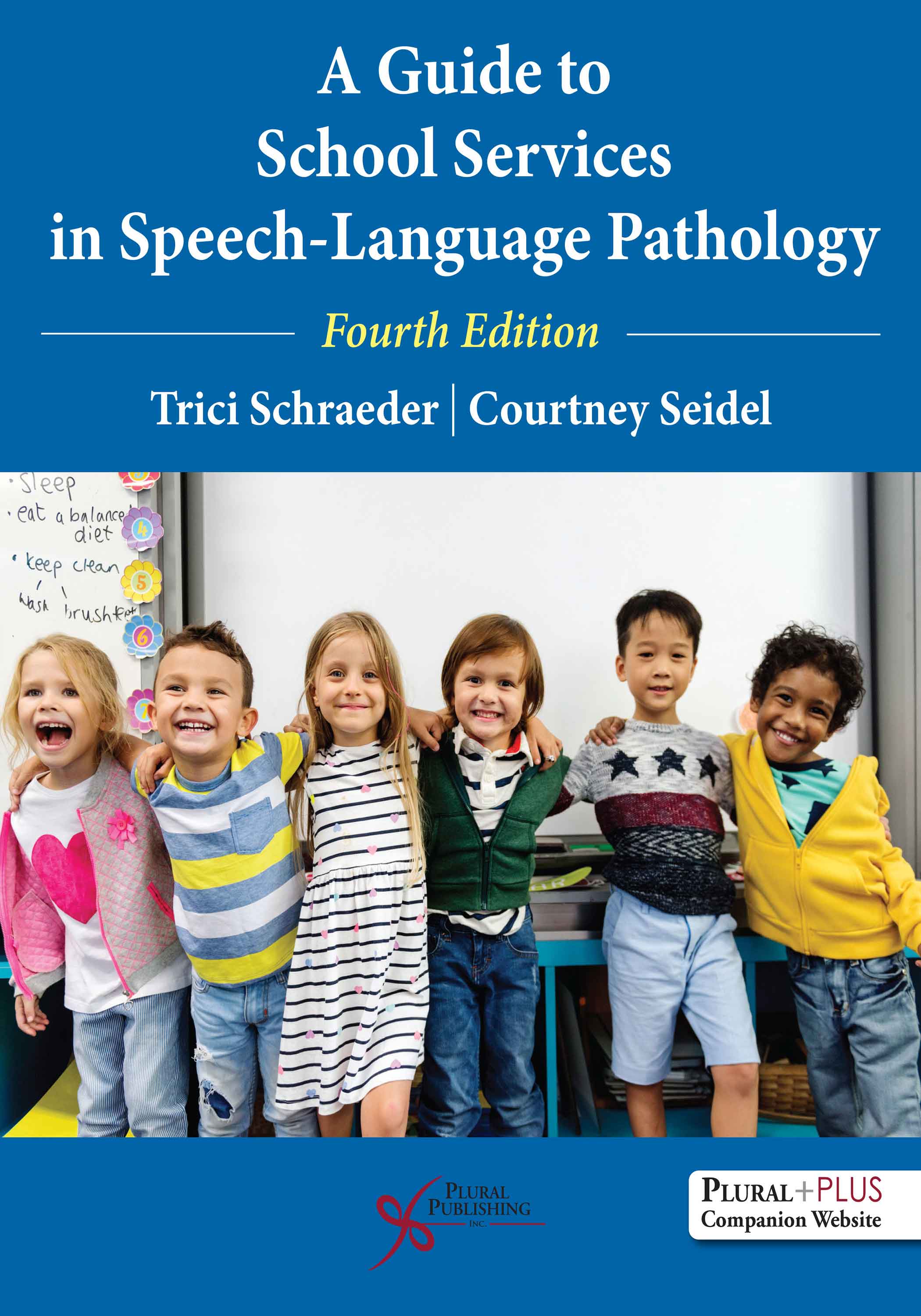
A Guide to School Services in Speech-Language Pathology.
Fourth Edition
Trici Schraeder, Courtney Seidel
Details: 310 pages, B&W, Softcover, 8.5" x 11"
ISBN13: 978-1-63550-178-0
© 2022 | Available
A new edition is here.
A Guide to School Services in Speech-Language Pathology, Fourth Edition serves as a comprehensive textbook for school-based speech-language pathology (SLP) courses and college students who are ready to embark on their student teaching experiences. With its summaries of cutting-edge research, evidence-based clinical approaches, workload solutions, and strategies for professionalism, the book is also a useful resource for practicing, school-based SLPs.
The text begins by providing a brief history of school-based SLP services. It highlights the legal mandates set forth in the Individuals with Disabilities Education Improvement Act; provides a review of the No Child Left Behind Act; offers new information about the Every Student Succeeds Act and the Americans with Disabilities Act; and summarizes court cases that have influenced and shaped school services. Then, the text delves into a description of service delivery models; provides valuable information about a workload analysis approach to caseload standards in schools; offers examples of how to write IEPs that reflect workload solutions; shares examples of implementation strategies; and offers concrete, real-life workload success stories. In addition, this text provides practical strategies for using evidence-based practice, proactive behavior management, conflict resolution, professional collaboration, conferencing and counseling skills, cultural competencies, goal writing, informal assessment procedures, and testing accommodations, including methods for conducting assessments for dual language learners. The final chapter provides the evidence base for links between language, literacy, and the achievement of school standards. This chapter is a must-read for every school SLP.
New to the Fourth Edition
- New coauthor, Courtney Seidel, MS, CCC-SLP.
- Examples of how to write IEPs that reflect workload.
- Current court cases that have influenced school practice.
- Information on implementing the 3:1 Model of service delivery and other evidence-based workload solutions.
- Information on conducting assessments with dual language learners as well as evidence-based clinical strategies for this growing population.
- Strategies to combat compassion fatigue.
- Information about behavior management, conflict resolution, and mindfulness training.
- Updated tables of evidence-based clinical strategies related to each disorder type.
- Updated references throughout to reflect the current state of research.
- PowerPoint lecture slides for instructors on a PluralPlus companion website with discussion questions and cooperative learning exercises and slides explaining the Flipped Classroom Approach.
Key Features
- End of chapter summaries and questions to refresh critical information and improve comprehension.
- Related vocabulary at the beginning of each chapter.
- Real-life scenarios based on experiences from public school SLPs.
- Links to useful strategies, materials, and resources such as the ASHA workload calculator and free Apps for intervention purposes.
- An Oral Language Curriculum Standards Inventory (OLCSI) that provides checklists of what students should know and be able to do at each grade level from Pre-K to 12th grade. The OLCSI is a must-have tool for every school-based SLP.
- Information and strategies about current topics such as Telepractice, children affected by the opioid crisis, assessment of dual language learners, and much more!
Review
"The topic overviews, definitions, and examples meet the needs of beginning clinicians. It also provides examples and overviews that would be helpful for experienced clinicians, especially those who are in supervisory roles. [...] It presents history and analysis of current issues that SLPs face in the school context, defines key vocabulary and concepts, provides examples and practical resources, and includes numerous references. Highlights include workload vs. caseload models and historical context for services. A strength of the book is its numerous examples of service delivery models and the historical context that is provided. Overviews are provided on topics such as evidence-based practice, standards-based services, counseling, behavior, as well as cultural-linguistic assessment and intervention. The Oral Language Curriculum Assessment Inventory is also included in full in the book and on the companion website.This book is an excellent resource for students of speech pathology and their supervisors in public schools. The fourth edition has a new co-author and updated current models and resources."
—Suzanne M Welty, M.A., Ed.D. CCC, Biola University, in Doody's Book Reviews
List of Tables and Figures
Preface
About the Authors
Acknowledgments
Chapter 1. Origins of Public School Speech-Language Pathology Programs
Related Vocabulary
Introduction
The Quiet Revolution
Movement Toward Inclusion
No Child Left Behind Act
Every Student Succeeds Act of 2015
Individuals With Disabilities Education Improvement Act
Successes and Failures
Roles and Responsibilities of Today’s School-Based Speech-Language Pathologist
Requisite Knowledge for the School-Based Speech-Language Pathologist
Essential Skills for the School-Based Speech-Language Pathologist
Dispositions Toward Persons with Disabilities: Considerations in Practice for the School-Based Speech-Language Pathologist
Summary
Questions for Application and Review
References
Chapter 2. A Workload Analysis Approach to Caseload Standards in Schools
Related Vocabulary
Introduction
Caseload and Service Quality: Specific Effects
What Is Caseload?
What Is Workload?
Considerations Regarding Options for Unmet Needs
Twelve Steps to a Workload Analysis
Some Workload Solutions
Success Story: A Workload Analysis Approach Applied to a Weighting System
Strategies for Making a Workload Solution Successful
Summary
Questions for Application and Review
References
Appendix 2–1. Middleton/Cross Plains Area School District Speech-Language Severity Rating Scales
Chapter 3. Assessment, Evaluation, and Individualized Education Programs in Schools
Related Vocabulary
Introduction
Prereferral
Referral for Evaluation for Special Education and Related Services
The Individualized Education Program Team
Assessment Activities
Evaluation Process
Evaluation Report
Reevaluation: General Provisions
The Individualized Education Program
A Historical Prospective: Ongoing Evolution of Individualized Education Programs
Summary
Questions for Application and Review
References
Appendix 3–1. Example IEPs
Appendix 3–2. Applying the IEP Team Decision-Making Flow Chart to a Case Study
Appendix 3–3. Discussion of Sarah’s IEP and Alignment to Common Core State Standards
Chapter 4. Speech-Language Service Delivery Formats Used in Public Schools: Intervention Approaches
Related Vocabulary
Introduction
Selecting Program Formats
Self-Contained Program Model
Receding Schedule Model
Blast or Burst Schedule Model
Resource Room Model
Block Schedule Model
Consultation Model
Team Teaching Model
Station Teaching Model
Parallel Teaching Model
Prevention Model
Cooperative Learning Team Model
Teaming for Reading Model
Pull-Out Program Model
Diversified Role Model
Computer-Assisted Learning Model
Telepractice Model
Video Modeling
Multimodal Communication Model
Teaming with English Language Learning (ELL) Programs
Selecting the Intervention Approach
Summary
Questions for Application and Review
References
Chapter 5. Evidence-Based Practice
Related Vocabulary
Introduction
“Credible Evidence” and “Scientifically Based”: What Do These Terms Mean?
Criteria for Evaluating the Quality of the Reasoning
Ranking the Quality of the Evidence
American Speech-Language-Hearing Assocation Initiative
American Speech-Language-Hearing Association Framework for Assessing Levels of Evidence
“Evidence Based” Is More Than Literature Reviews
When Is It Advantageous to Examine Levels of Evidence?
Challenges
State of the Art
Specific Evidence of What Works in Speech-Language Intervention
Summary
Questions for Application and Review
References
Appendix 5–1. Useful Web-Based Resources
Chapter 6. Problem Behavior Management and Conflict Resolution
Related Vocabulary
Introduction
Prior, Proper Planning, and Proactive Strategies
Creating a Culture of Community
The Adverse Affects of Bullying on School Community and School Climate
Approaches to Discipline and How to Impact School Culture
Effective Conflict Resolution to Use with Adults
Summary
Questions for Application and Review
References
Chapter 7. Cultural and Linguistic Competencies: Assessment and Intervention
Related Vocabulary
Introduction
Interview and Case History
Considerations for Bilingual Students and Families
Assessment Tools
Approaches to Assessment
Cultural Considerations Related to Intervention
Cultural Competence Related to Curriculum Content and Intervention
Summary
Questions for Application and Review
References
Chapter 8. Conferencing, Counseling, and Creating a Sense of Community
Related Vocabulary
Introduction
Creating a Positive First Contact
Tips and Techniques for Parent-Teacher Conferences and Individualized Education Program Meetings
Student Records and Confidentiality
Tips and Techniques for Personal Adjustment Counseling
Summary
Questions for Application and Review
References
Chapter 9. Oral Language Curriculum Standards Inventory (OL-CSI): An Authentic Assessment Approach for School-Based Speech-Language Pathologists
Related Vocabulary
Introduction
References
Appendix 9–1. Oral Language Curriculum Standards Inventory (OL-CSI)
Chapter 10. Aligning Literacy, State Standards, and School-Based Speech-Language Pathology Services
Related Vocabulary
Introduction
Accommodations and Resources for Students With Special Education Needs
An Integrated Model of Literacy Through the Common Core State Standards
The Role of the Speech-Language Pathologist With Respect to Vocabulary Development, Language, and Literacy
Recommended Evidence-Based Service Delivery Formats and Clinical Strategies
Case Study
What to Do with an Older Student Who Is Functioning at a First-Grade Level
How Universal Design for Learning Connects to the Common Core State Standards
The Impact of the Opiod Crisis on Language and Literacy Development
Summary
Questions for Application and Review
References
Index
A Guide to School Services in Speech-Language Pathology, Fourth Edition comes with access to supplementary student and instructor materials on a PluralPlus companion website.
STUDENTS:
To access the student materials, you must register on the companion website and log in using the access code printed on the inside front cover of your textbook.*
INSTRUCTORS:
To access the instructor materials, you must contact Plural Publishing, Inc. to be verified as an instructor and receive your access code.
Email: instructormaterials@pluralpublishing.com
Tel: 866-758-7251 (toll free) or 858-492-1555
*Note: If you have purchased this textbook used or have rented it, your access code will not work if it was already redeemed by the original buyer of the book. Plural Publishing does not offer replacement access codes for used or rented textbooks.
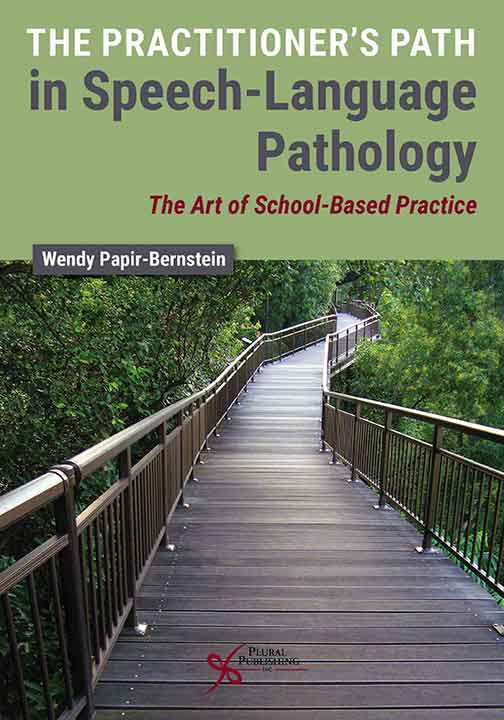
The Practitioner's Path in Speech-Language Pathology: The Art of School-Based Practice
First Edition
Wendy Papir-Bernstein
Details: 402 pages, B&W, Softcover, 7" x 10"
ISBN13: 978-1-94488-345-4
© 2018 | Available
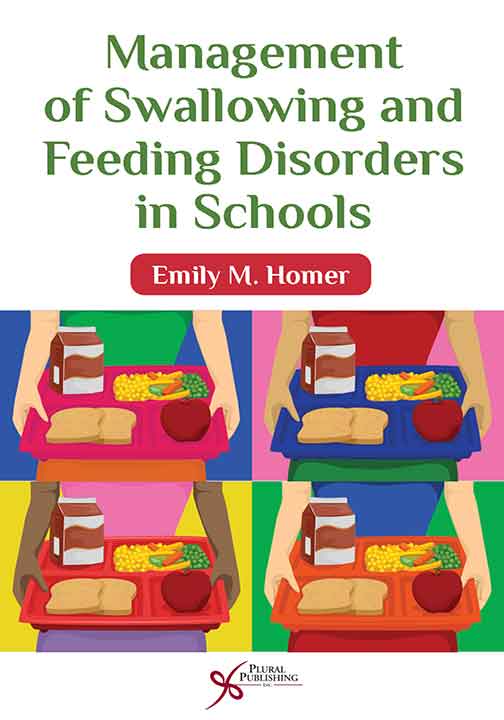
Management of Swallowing and Feeding Disorders in Schools
First Edition
Emily M. Homer
Details: 318 pages, B&W, Softcover, 6" x 9"
ISBN13: 978-1-59756-515-8
© 2016 | Available
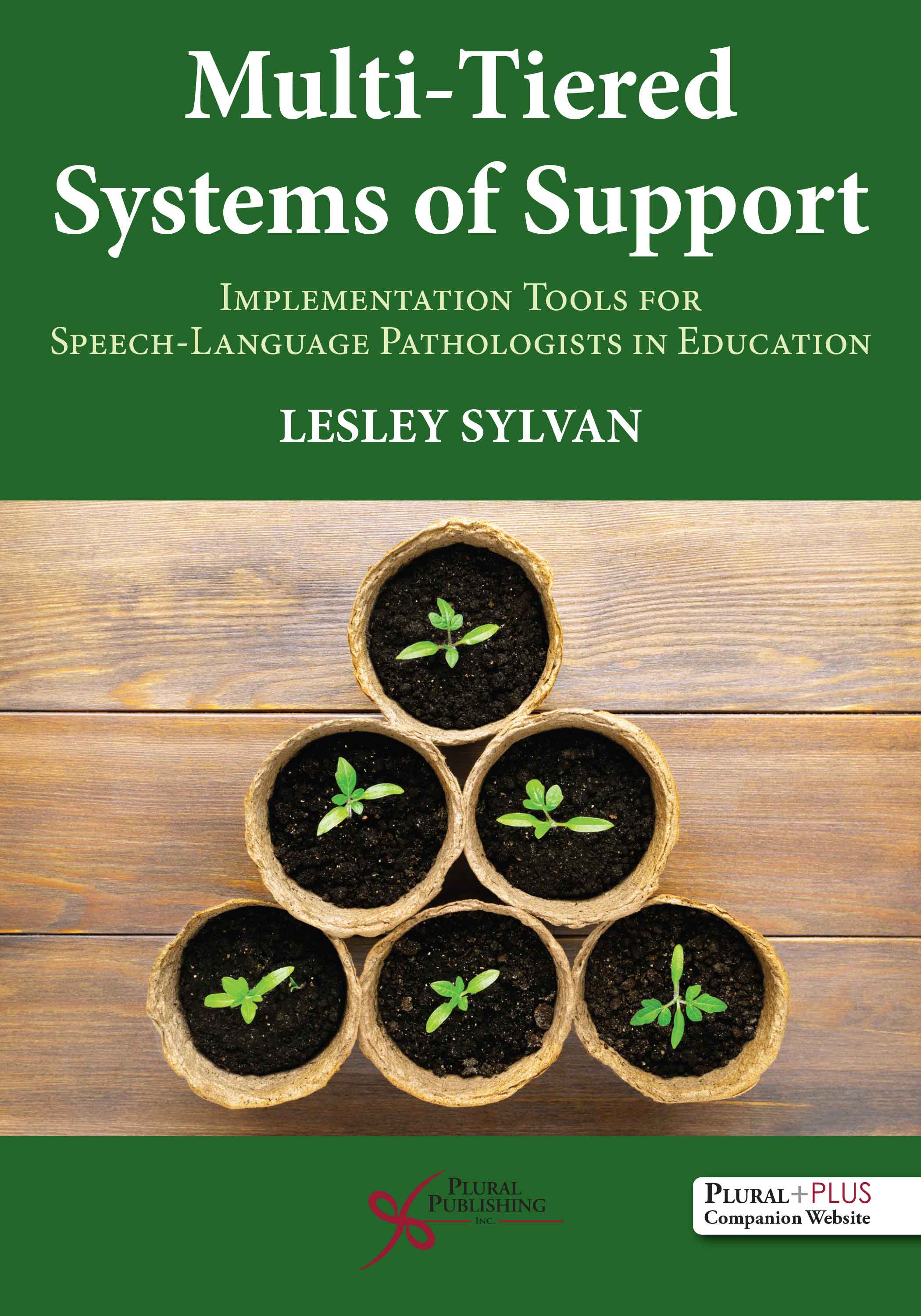
Multi-Tiered Systems of Support: Implementation Tools for Speech-Language Pathologists in Education
First Edition
Lesley Sylvan
Details: 247 pages, B&W, Softcover, 7" x 10"
ISBN13: 978-1-63550-294-7
© 2021 | Available
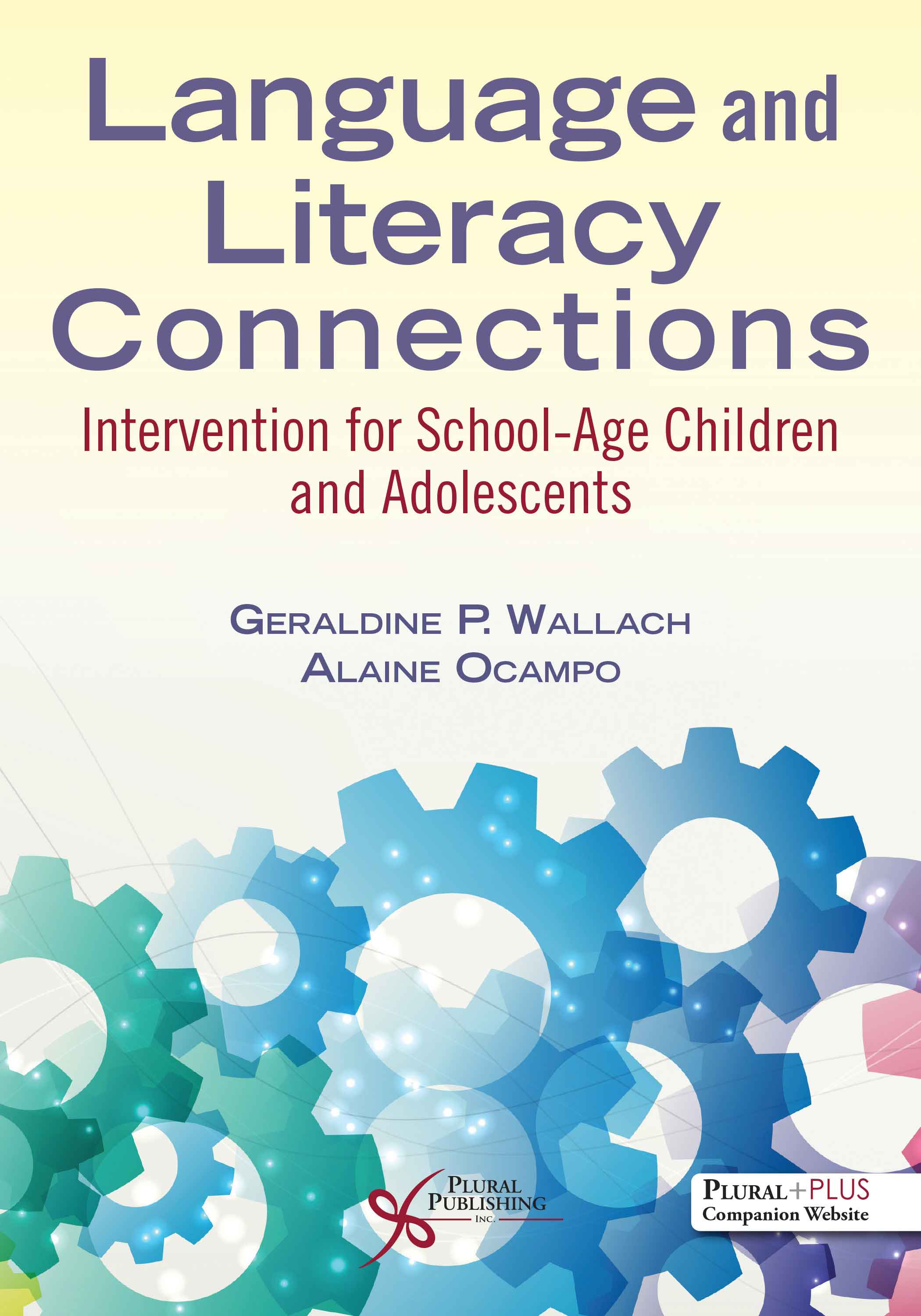
Language and Literacy Connections: Intervention for School-Age Children and Adolescents.
First Edition
Geraldine P. Wallach, Alaine Ocampo
Details: 358 pages, B&W, Softcover, 7" x 10"
ISBN13: 978-1-63550-213-8
© 2022 | Available
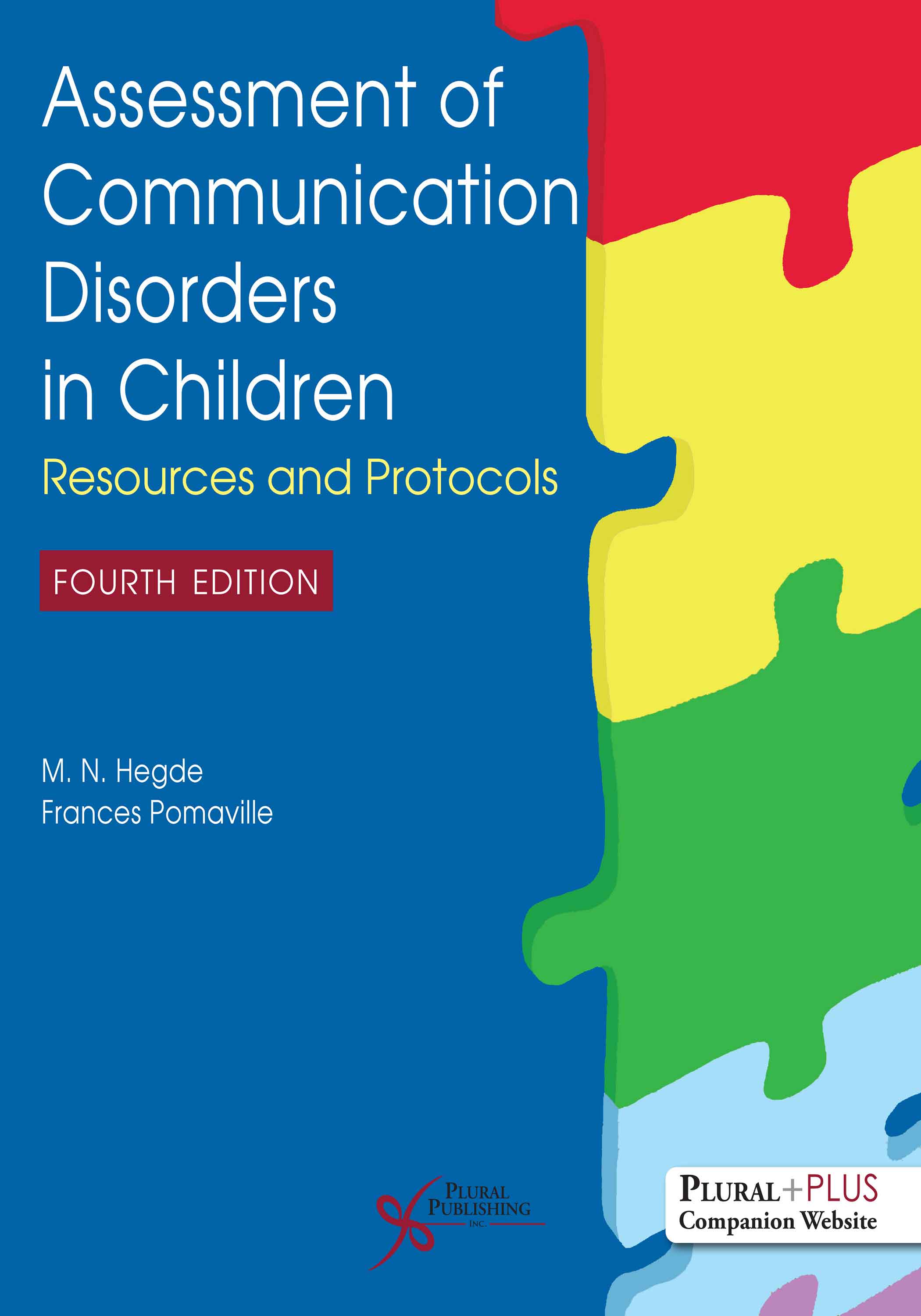
Assessment of Communication Disorders in Children: Resources and Protocols
Fourth Edition
M.N. Hegde, Frances Pomaville
Details: 444 pages, B&W, Softcover, 8.5" x 11"
ISBN13: 978-1-63550-266-4
© 2022 | Available
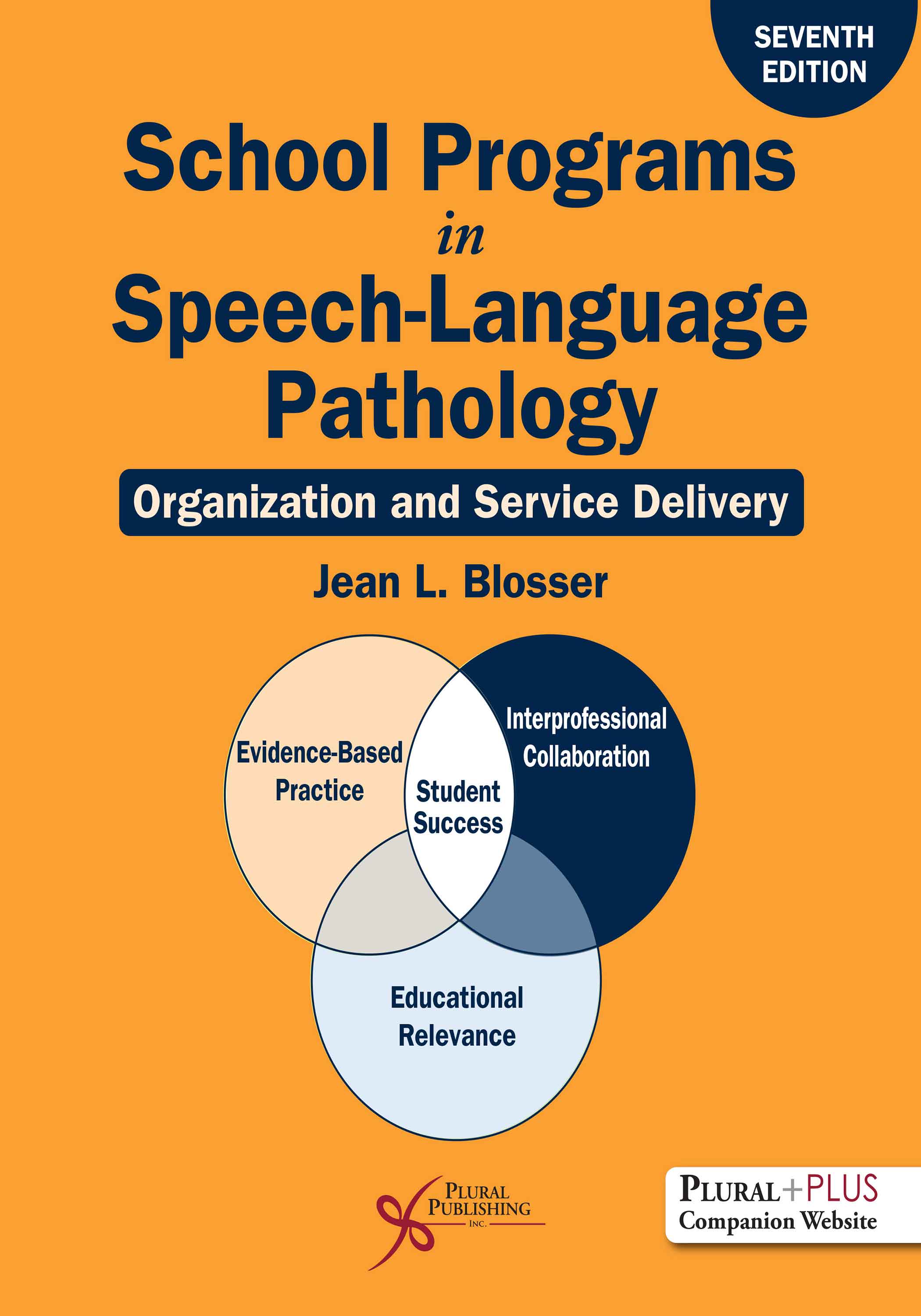
School Programs in Speech-Language Pathology: Organization and Service Delivery
Seventh Edition
Jean Blosser
Details: 457 pages, B&W, Softcover, 8.5 " x 11"
ISBN13: 978-1-63550-611-2
© 2025 | Available


